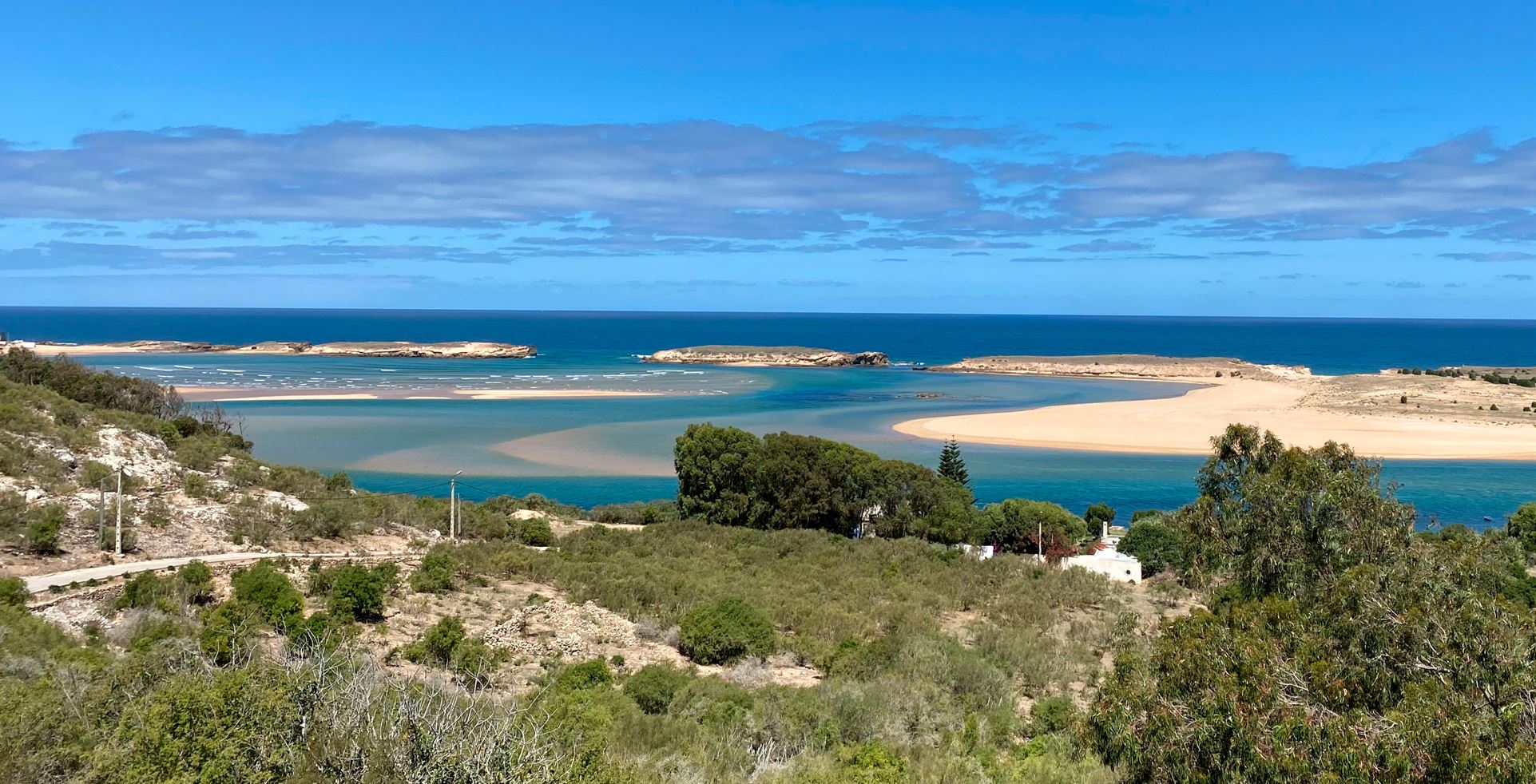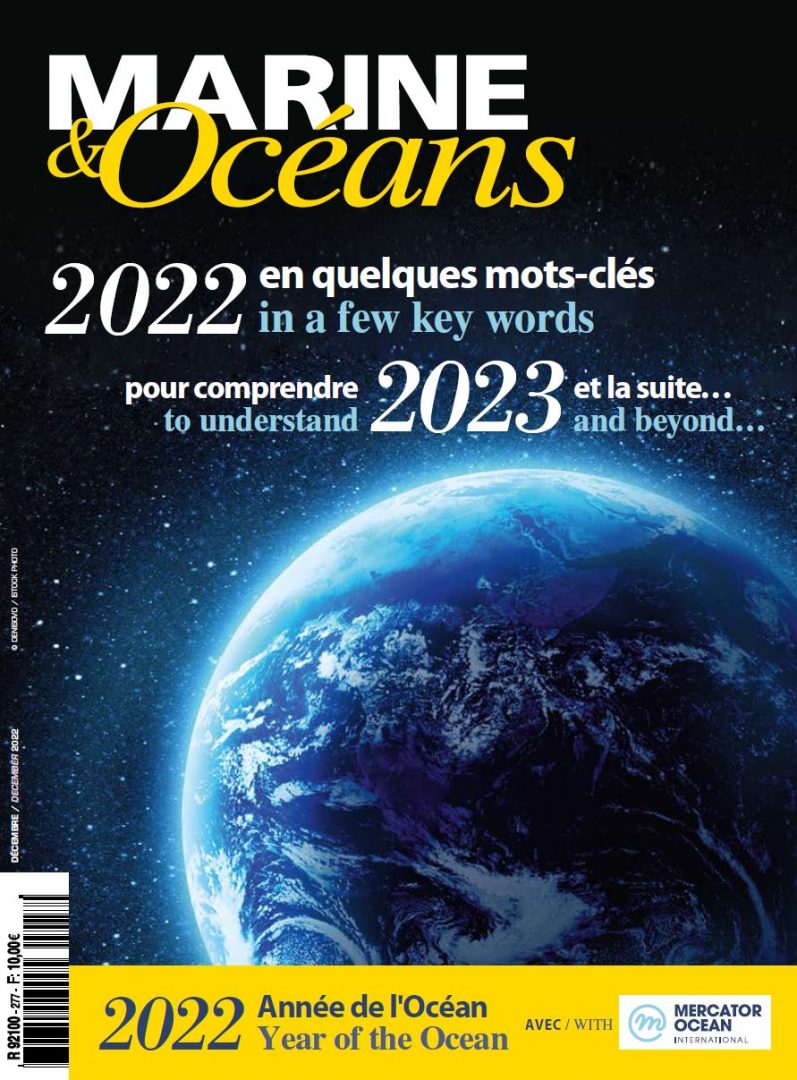“Morocco and the European Union share a mutual ambition to protect marine biodiversity”
Interview by Bertrand de Lesquen
* * *
The European Union and Morocco are linked by a privileged partnership in the field of fisheries. What are the genesis and purpose of this agreement?
The Sustainable Fisheries Partnership Agreement between the European Union (UE) and Morocco has existed for thirty years, through a series of bilateral agreements and implementation protocols, the first dating from 1988, the most recent from July 18, 2019. These fisheries agreements create a governance partnership with Morocco in a key sectoral policy for both parties, and they fall within the broader framework of the EU’s neighbourhood policy.
The Sustainable Fisheries Partnership Agreement contributes to the promotion of good governance of fishing activities and to the Moroccan economy by strengthening the bilateral relations between Morocco and the European Union in the fishing and maritime sector. Its implementation provides fishing opportunities for EU vessels, while ensuring sustainable management of natural marine resources. The Agreement includes sectoral financial support targeting a number of projects, which are supporting the development of Morocco’s maritime sector.
The European Union and Morocco have a common objective of preserving marine biodiversity. How do the two partners ensure that this is achieved?
Morocco and the EU share a mutual ambition to protect and improve the management of our environment and natural resources. This enables us to articulate and work together on appropriate responses, in line with the United Nations’ Agenda 2030 and its Sustainable Development Goals(1). For example, Morocco is currently involved in the AFRIMED project, funded by the European Maritime and Fisheries Fund (EMFF), a project, which aims to develop innovative preservation and conservation actions in order to restore damaged or degraded macroalgal forests (cystoseira).
Morocco and the EU work together on biodiversity concerns in a number of regional forums. We are both active participants in the Initiative for the Development of a Blue Economy in the West Mediterranean (WestMed Initiative), of which Morocco held the co-presidency during the period 2019-2020. Preserving biodiversity beyond just marine habitat conservation and restoration has been one of the priorities of the WestMed initiative, since the adoption in 2018 of the Framework for Action and the intergovernmental roadmap.
Moreover, we are working closely together within the Union for the Mediterranean (UfM). In the Union for the Mediterranean’s Ministerial Declaration on sustainable blue economy adopted in February 2021, the EU and Morocco committed to increase the coverage of Marine Protected Areas in our waters. As part of the EU Biodiversity Strategy 2030, the EU Member States had already committed to protect 30% of their Exclusive Economic Zone.

The Mediterranean is one of the most polluted seas in the world. What actions are the European Union and Morocco taking to combat pollution, particularly plastic pollution?
Given our close proximity, cooperation is an essential component of our shared fight against pollution. Maritime safety and the fight against marine pollution are among the 10 agreed priorities under the WestMed Initiative’s Framework for Action and the intergovernmental roadmap adopted in 2018. Morocco has also participated, for example in the WestMoPoCo project(2), financed by the EU, which is focused on preparedness for responding to chemical spills.
The recent Union for the Mediterranean Ministerial Declaration on Sustainable Blue Economy, to which we are both signatories, includes a series of actions to reduce plastic and micro-plastic pollution in the Mediterranean. Blue economy activities on both sides of the Mediterranean, such as marine and coastal tourism, fisheries and aquaculture, must play their part in this. We also need to reduce nutrient loss into the sea, address the use of and risks from chemical pesticides, and collect and recycle fishing gear made from plastic.
At present, the EU is working with our Moroccan counterparts in the framework of the BLUEMED pilot initiative for a ‘healthy, plastic-free Mediterranean Sea’. This pilot action involves mapping and assessing actions in place in Mediterranean countries — both EU and non-EU — relating to marine plastic pollution so as to promote the circulation of good practices and Research & Innovation actions, as well communication and educations actions. Morocco is also involved in different regional projects on the impacts of plastic pollution and alternatives to single use plastic bags, as well as on developing business models engaging plastics recycling associations and industries.
Additionally, Morocco is one of eight Mediterranean countries joining the SwitchMed Initiative, an initiative funded by the EU, which aims to stimulate the creation of greater business and good-quality employment opportunities, while reducing the environmental footprint of existing economic activities in the Southern Mediterranean. The second phase (SwitchMed II) will build upon the results of the first phase, in order to further support and scale up the transition towards sustainable consumption and production practices.
What is the state of cooperation between the European Union and Morocco in the field of renewable marine energy?
The EU has adopted an ambitious strategy for offshore renewable energy with the ambition to multiply the capacity for offshore renewable energy five-fold by 2030 and 30-fold by 2050. While to date, most marine renewable energy projects (primarily offshore wind farms) have been developed in the North Sea, new technologies are opening ways for the development of offshore energy in other areas. The EU is keen to cooperate with Morocco on the development of marine renewable energy for our mutual benefit, given Morocco also has great offshore renewable potential on both its Mediterranean and Atlantic coasts.

The European Union and Morocco signed an agreement in December 2020, strengthening the involvement of Morocco in the Atlantic Ocean Research Alliance (AROA). What is this agreement and what is at stake?
On 8 December 2020, the European Commission and the Moroccan Ministry of National Education, Vocational Training, Higher Education and Scientific Research signed an administrative arrangement on marine research and innovation cooperation, which has its legal basis in the existing EU-Morocco Science and Technology Agreement. We both recognise the key role that the oceans play in developing national and regional economies, achieving the UN Sustainable Development Goals (SDGs) and addressing climate change, biodiversity and food security.
With this administrative arrangement, the EU and Morocco will encourage cooperation to our mutual benefit in key common areas of interest such as climate variability and ecosystem approaches; ocean observation, forecasting and monitoring processes; food security, fisheries management, aquaculture, and biodiversity; ocean technology; and marine pollution. This cooperation may take many forms, including joint organisation of workshops and conferences, the development of scientific and citizens’ networks, the promotion of citizen engagement, and participation in joint researchers or stakeholder engagement activities, among others.
The main platform for Research & Innovation cooperation in the Atlantic is the All-Atlantic Ocean Research Alliance(3), which brings together the signatories of the Galway Statement (EU, USA and Canada) and the Belem Statement (EU, South Africa and Brazil), as well as all the other countries bordering the Atlantic Ocean, in particular Cabo Verde, Argentina, and now Morocco thanks to this recent administrative arrangement. However, our cooperation is not limited to the Atlantic basin but also includes the Mediterranean Sea, notably through the BlueMed partnership.
The administrative arrangement has already led to several results such as the participation of Minister Saaid Amzazi, Minister of National Education, Vocational Training, Higher Education and Scientific Research, in the All-Atlantic 2021 Ministerial High-Level & Stakeholder Conference, as well as the active contribution of Youth Ambassadors from Morocco, Europe and other Atlantic countries in the event and in the planning of a leg of the Tara “Mission Microbiome” expedition in Morocco. It also opened the door for Moroccan scientists to become fully associated in the many different ongoing activities of the All Atlantic Ocean Research Alliance.
- In 2015, the UN adopted Agenda 2030, which includes 17 Sustainable Development Goals (SDG) to be achieved by that date, mainly to eradicate poverty, protect the planet and ensure prosperity for all.
- The Project Western Mediterranean Region Marine Oil and Highly Noxious Substances Pollution Cooperation(West MOPoCo) supports Algeria, France, Italy, Malta, Morocco, Spain and Tunisia in collaboration with Monaco in strengthening their cooperation in the field of preparedness for and response to these pollutions.
- Involves countries on both sides of the Atlantic Ocean interested in strengthening their cooperation in marine research and innovation along and across the Atlantic, from the Arctic to the Antarctic.


